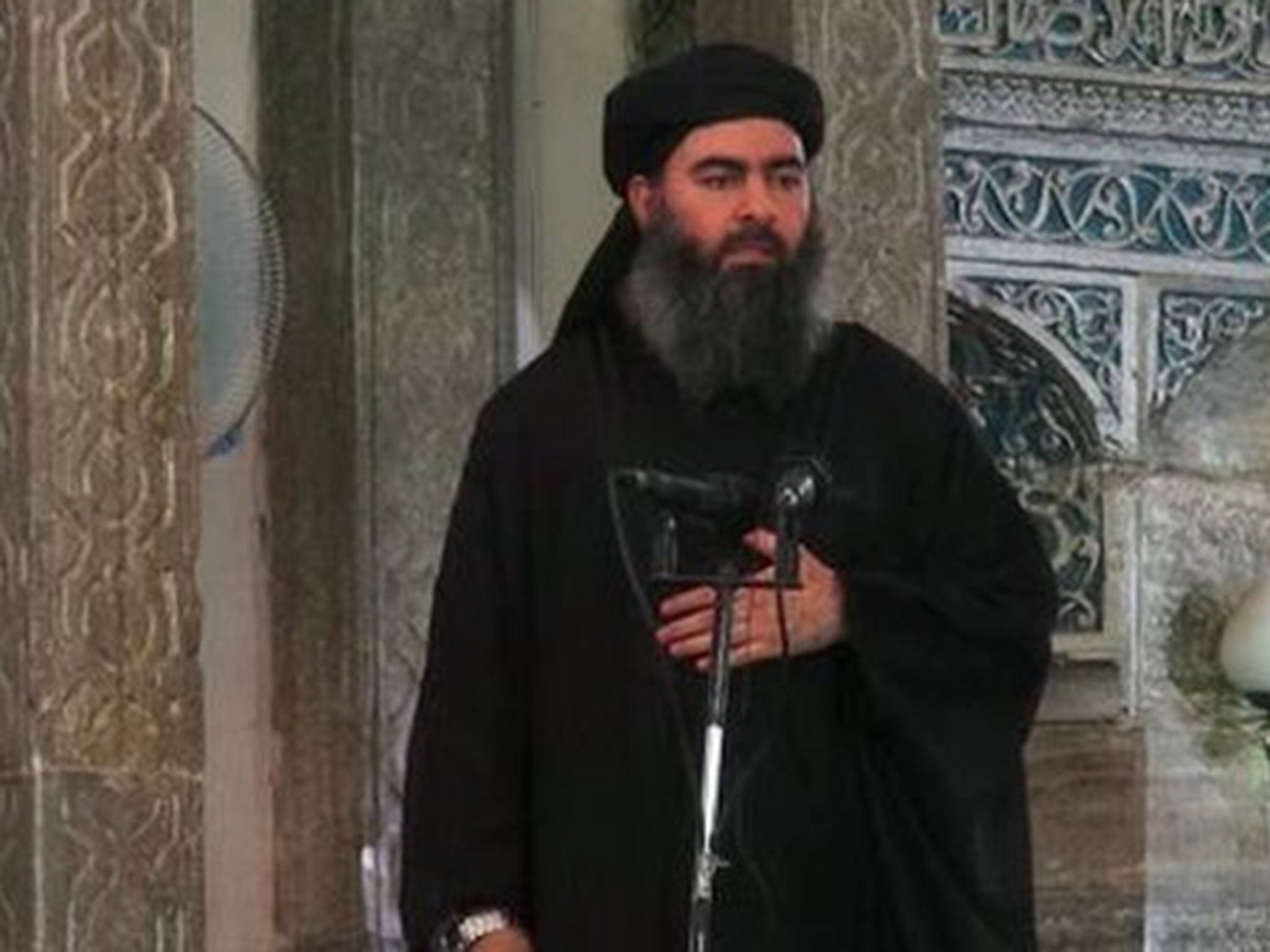Abu Bakr al-Baghdadi: Isis leader is a figurehead for whom nothing is beyond the pale
His persona has shaped Isis's brutal and warped version of Islam

Your support helps us to tell the story
From reproductive rights to climate change to Big Tech, The Independent is on the ground when the story is developing. Whether it's investigating the financials of Elon Musk's pro-Trump PAC or producing our latest documentary, 'The A Word', which shines a light on the American women fighting for reproductive rights, we know how important it is to parse out the facts from the messaging.
At such a critical moment in US history, we need reporters on the ground. Your donation allows us to keep sending journalists to speak to both sides of the story.
The Independent is trusted by Americans across the entire political spectrum. And unlike many other quality news outlets, we choose not to lock Americans out of our reporting and analysis with paywalls. We believe quality journalism should be available to everyone, paid for by those who can afford it.
Your support makes all the difference.Standing in the Great Mosque of Mosul last year, Abu Bakr al-Baghdadi declared his Islamic “caliphate” to the world. His leadership was a calling from God, he said.
Moments before, his men were rumoured to have murdered the mosque’s mufti and members of his staff for refusing to pledge allegiance. This merciless brutality has defined the so-called “Islamic State”, and its murderous rage is personified by its leader. Born Awwad Ibrahim al-Badri al-Samarrai in 1971 in Samarra, central Iraq, Abu Bakr studied Islam at Baghdad University and became radicalised after the American invasion. He spent time in Camp Bucca, the main US-run prison in Iraq following the torture scandal of Abu Ghraib, and mixed with jihadists from al-Qaeda in Iraq.
Upon his release in the early 2000s, Abu Bakr rose through the ranks of al-Qaeda in Iraq, running a campaign of terror against the Shia never seen before, and presiding over a sharia court in Anbar – personally carrying out his own terrible judgments on those who stood before him.
It was the outbreak of war in Syria that presented Abu Bakr, by this point leader of a revamped “Islamic State of Iraq” after al-Qaeda had disowned them for their brutality. He sent a lieutenant to create the Nusra Front in Syria, and in turn declared Nusra would be merged under his command, as Ayman al-Zawahiri, the leader of al-Qaeda, had “deviated from the correct paths”. From there, Isis was born, spreading from Raqqa in central Syria to engulf northern and western Iraq in lightning and brutal campaigns that swept the armies of Syria and Iraq before them.
The enslavement of prisoners was justified, Isis said. The beheading of apostates a necessity, maiming for the slightest of infractions deemed “pious”.
The spoils of war – slaves, wives and money – were God’s reward for success on the battlefield, fighters were told. All decrees came from the top and, it seems, with the enslavement of the American Kayla Mueller, was practised as well as preached by Abu Bakr.
The Americans regard Abu Bakr as one of their most-wanted, but not the most wanted – Zawahiri, whom Baghdadi cast aside, still has a higher bounty on his head.
For Abu Bakr, despite many attempts to kill him, and multiple announcements of his injuries and death, survives.
But regardless of his condition, Isis endures. Abu Bakr’s persona has shaped the brutal and warped version of Islam on which Isis justifies its existence, but the group has now become more than the man.
Join our commenting forum
Join thought-provoking conversations, follow other Independent readers and see their replies
Comments